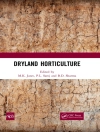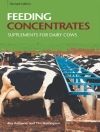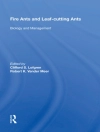In any ecosystem, plant and microbe interaction is inevitable. They not only co-exist but also support each other’s survival and provide sustenance in stressful environments. Agro-ecosystems in many regions around the globe are affected by high temperatures, soil salinity/alkalinity, low p H and metal toxicity. High salinity and severe draught are other major constraints affecting agricultural practices and also plants in the wild.
A major limiting factor affecting global agricultural productivity is environmental stresses. Apart from decreasing yield, they also have a devastating impact on plant growth. Plants battle with various kind of stresses with the help of symbiotic associations with the rhizospheric microbes. Naturally occuring plant-microbe interactions facilitate the survival of plants under these stressful conditions.
The rhizosphere consists of several groups of microbes, plant growth-promoting bacteria (PGPB) is one such group of microbes that assists plants in coping with multiple stresses and also promote plant growth. These efficient microbes support the stress physiology of the plants and can be extremely useful in solving agricultural as well food- security problems.
This book provides a detailed, holistic description of plant and microbe interaction. It elucidates various mechanisms of nutrient management, stress tolerance and enhanced crop productivity in the rhizosphere, discussing The rhizospheric flora and its importance in enhancement of plant growth, nutrient content, yield of various crops and vegetables as well as soil fertility and health. Divided into two volumes, the book addresses fundamentals, applications as well as research trends and new prospects for agricultural sustainability. Volume 1: Stress Management and Agricultural Sustainability, includes chapters offering a broad overview of plant stress management with the help of microbes. It also highlights the contribution of enzymatic and molecular eventsoccurring in the rhizosphere due to plant microbe interactions, which in turn help in the biological control of plant disease and pest attacks. Various examples of plant microbe interaction in rhizospheric soil are elaborated to facilitate the development of efficient indigenous microbial consortia to enhance food and nutritional security.
Providing a comprehensive information source on microbes and their role in agricultural and soil sustainability, this timely research book is of particular interest to students, academics and researchers working in the fields of microbiology, soil microbiology, biotechnology, agronomy, and the plant protection sciences, as well as for policy makers in the area of food security and sustainable agriculture.
Inhoudsopgave
– Rhizospheric microbes for sustainable agriculture: An overview. – Current perspectives on rhizobacterial-exopolymeric substances (EPS) interactions and alleviation of stress responses: Novel strategies for sustainable agricultural productivity. – Role of ACC deaminase as a stress ameliorating enzyme of plant growth promoting rhizobacteria useful in stress agriculture: a review. – Towards the unculturable microbes for sustainable agricultural production. – Induction of anatomical, enzymatic and molecular events in maize by PGPR under biotic stress. – Bioremediation of metal contaminated soil for sustainable crop production. – Biofertilizers based on bacterial endophytes isolated from cereals: potential solution to enhance these crops. – Plant growth promoting rhizobacteria: a biological approach towards the production of sustainable agriculture. – Application and mechanisms of Bacillus subtilis in biological control of plant disease. – Mycorrhizae: a potential microorganism and its implication in agriculture. – Using mycorrhiza helper microorganisms (MHM) to improve the mycorrhizal efficiency on plant growth. – Sustainable crop production and soil health management through plant growth promoting rhizobacteria. – Bioherbicidal potential of rhizosphere microorganisms for ecofriendly weeds management. – Biofertilizers and biopesticides in sustainable agriculture.
Over de auteur
Dr. Vijay Singh Meena is currently working as a soil scientist in the ICAR-Vivekananda Institute of Hill Agriculture, Almora, Uttarakhand. He obtained his B.Sc. (AG.) from SKRAU, Bikaner, Rajasthan, M.Sc. (AG.) and Ph.D. (AG.) with specialization in Soil Science and Agricultural Chemistry from Banaras Hindu University (The Capital of Knowledge), Varanasi, Uttar Pradesh, India. He has completed vital work on potassium-solubilizing microbes, soil biological fertility, rhizospheric chemistry, and conservation agriculture, and has published more than 30 original research articles in national and international peer-reviewed journals. In addition, he has published four books and eleven book chapters.












